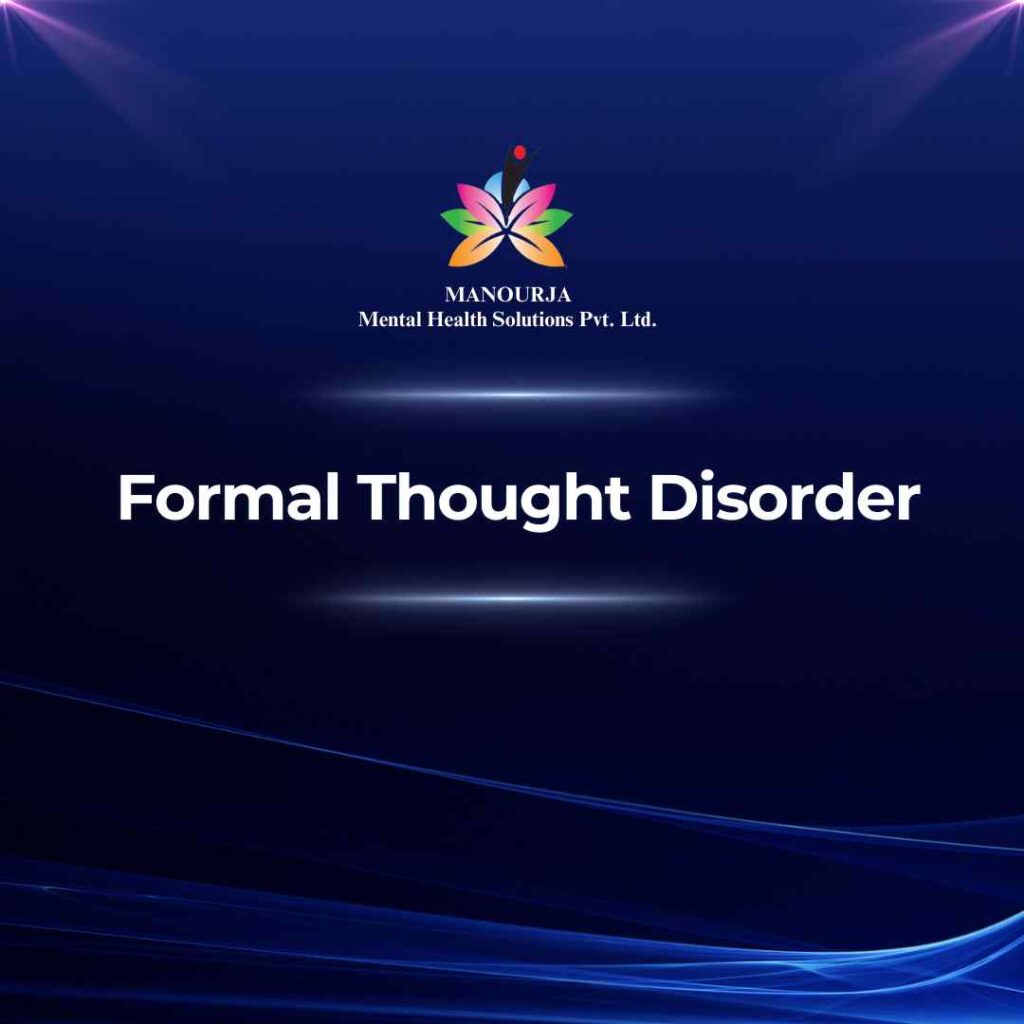Formal Thought Disorder

Formal thought disorder, also known as disorganized thinking, refers to disturbances in the organization and coherence of thought processes. It involves difficulties in maintaining logical connections between thoughts, which can manifest in speech and writing as disorganized or incomprehensible language.
Formal Thought Disorder as a Sign and Symptom
Formal thought disorder is commonly observed in several mental health conditions, including:
- Schizophrenia: Formal thought disorder is a hallmark symptom of schizophrenia, particularly during acute psychotic episodes. It can manifest in various ways, such as derailment (sudden shifts from one topic to another), tangentiality (answering questions in an unrelated manner), or incoherence (speech that is difficult to follow).
- Bipolar Disorder: During manic episodes of bipolar disorder, individuals may experience formal thought disorder characterized by rapid, racing thoughts and pressured speech. While speech may be fluent, it can lack coherence and logical structure.
- Psychotic Disorders: Other psychotic disorders, such as schizoaffective disorder and brief psychotic disorder, can also present with formal thought disorder as a prominent symptom during acute phases of illness.
- Neurocognitive Disorders: Certain neurocognitive disorders, such as those caused by traumatic brain injury or neurodegenerative diseases like dementia, can lead to disorganized thinking and speech patterns resembling formal thought disorder.
Mechanism
The underlying mechanisms of formal thought disorder involve disruptions in neural circuits responsible for language processing and executive function. Neurochemical imbalances and structural abnormalities in the brain, particularly in the frontal and temporal lobes, contribute to these disturbances in thought organization.
Treatment
Treatment of formal thought disorder typically involves antipsychotic medications to manage psychotic symptoms, along with psychotherapy aimed at improving cognitive and communication skills. Supportive interventions and cognitive-behavioral techniques may also help individuals with formal thought disorder enhance their ability to organize thoughts and communicate effectively.
Conclusion
Formal thought disorder, characterized by disorganized and incoherent thinking patterns, is a significant symptom observed in schizophrenia, bipolar disorder (during manic episodes), other psychotic disorders, and certain neurocognitive disorders. Recognizing and addressing formal thought disorder is crucial for comprehensive treatment and management of these conditions.
At MANOURJA, we believe in the transformative power of counseling. Our experienced therapists offer a safe and supportive space where you can explore your thoughts, emotions, and challenges. Through personalized counselling sessions, we’ll work together to develop coping strategies, build resilience, and achieve lasting positive change. Discover the path to a healthier, happier you with MANOURJA counselling services.
MANOURJA Rehabilitation Services
At MANOURJA, we’re dedicated to helping you in rebuild your life, after difficult times. Our rehabilitation services focus on understanding what you need to move forward, whether you’re recovering from addiction, trauma, or any psychological – social challenges. We create personalized plans, that are all about helping you, regain your strength and find hope again. With a caring team by your side, you’ll have the support to make real progress and take steps toward a brighter, healthier future.
